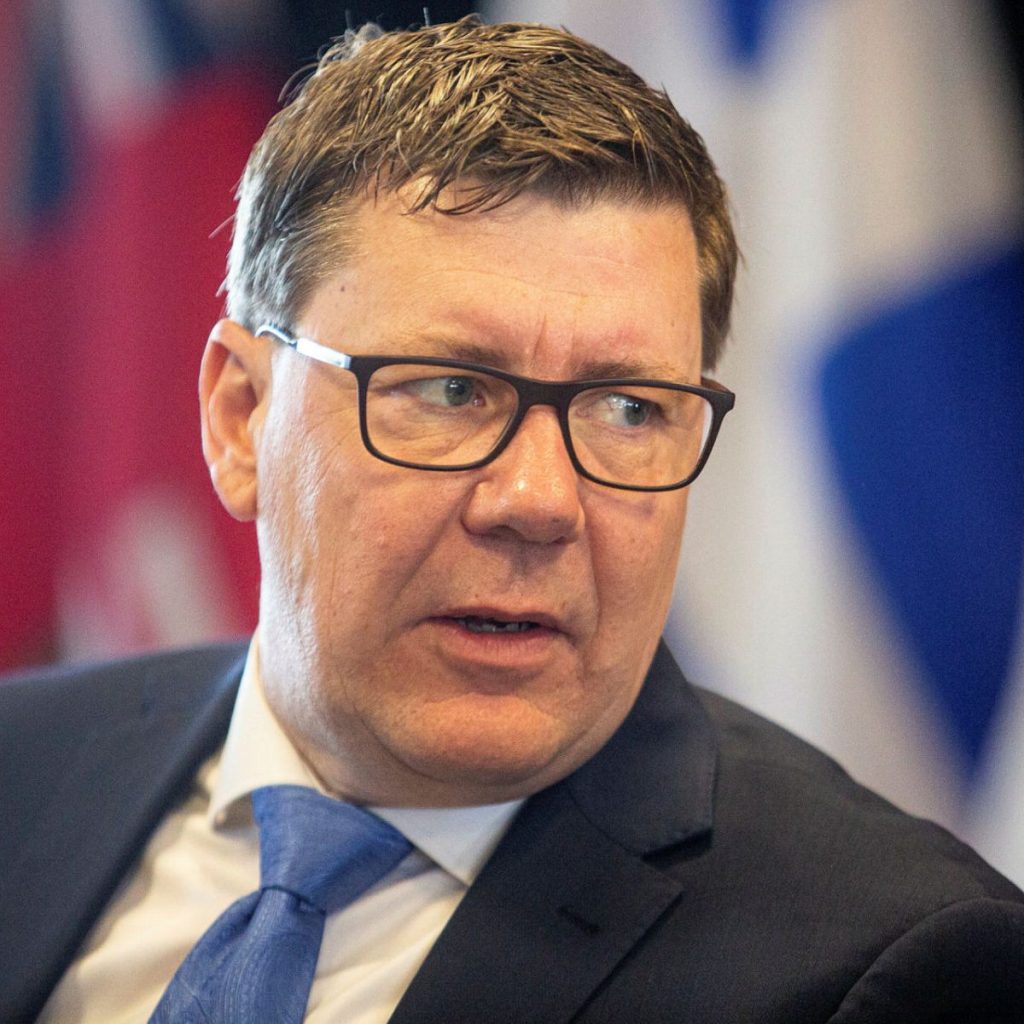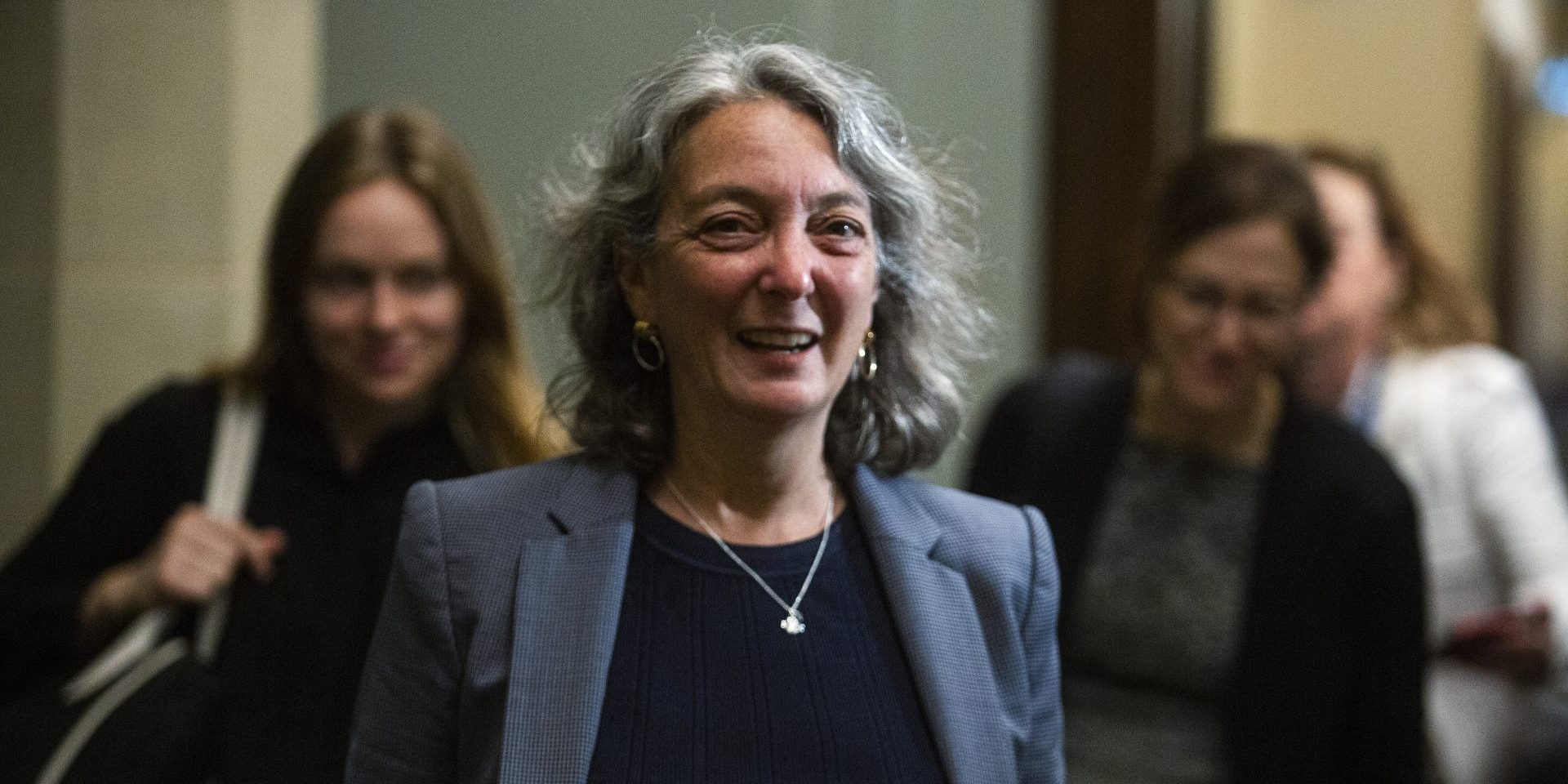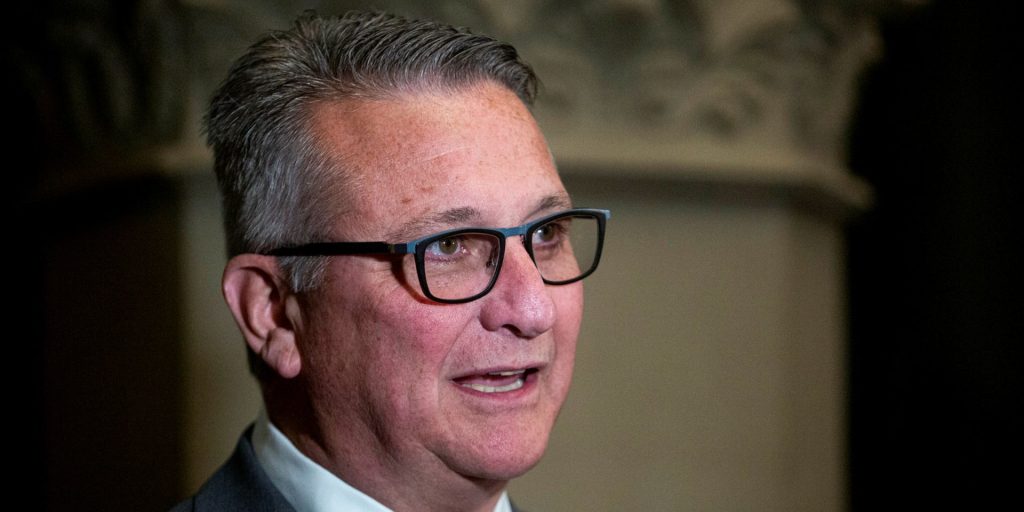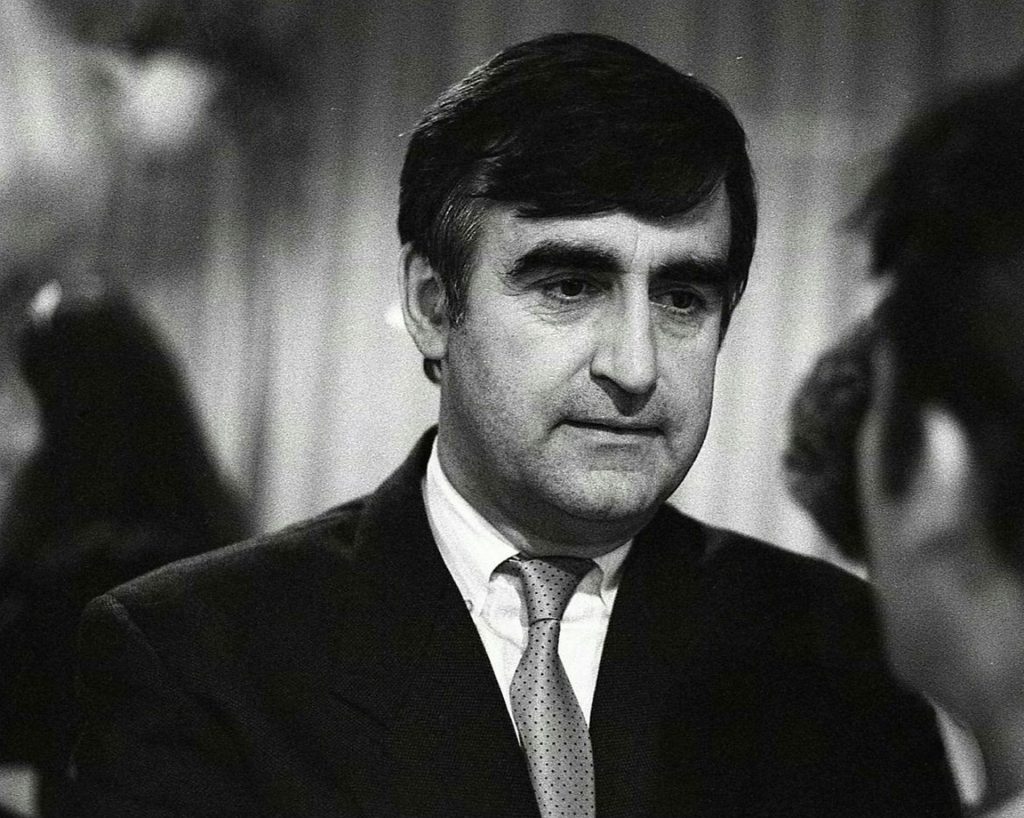Good Tuesday morning,
Prime Minister MARK CARNEY is joining the premiers in Ontario’s cottage country today.
Those premiers are in Muskoka for a three-day Council of the Federation summit, which began yesterday. They’re staying at the expansive Deerhurst Resort, and they won’t be the only ones: most of the resort has remained open to holidaymakers during the summit, save for the conference rooms and a couple of restaurants. Odds are, some of the politicking will happen in this room.
Huntsville is represented in the House of Commons by Conservative MP SCOTT AITCHISON.
The context, of course, is Carney’s trade and security negotiations with U.S. President DONALD TRUMP. Those talks are being conducted behind closed doors, and they don’t seem to be going particularly well. Carney has already conceded on the digital services tax, and gotten nothing in return. Trump and Commerce Secretary HOWARD LUTNICK have continued to threaten forever-tariffs on Canada, and Carney recently told reporters that there is “not a lot of evidence” that the Trump government wants to eliminate tariffs for any country.
Yesterday, Carney met with a delegation of U.S. Senators: RON WYDEN, a Democrat representing Oregon; MAGGIE HASSAN, a democrat for New Hampshire; CATHERINE CORTEZ MASTO, a Democrat for Nevada; and LISA MURKOWSKI, a Republican for Alaska who recently expressed some buyers’ remorse after helping Trump to pass his so-called “Big Beautiful Bill,” which will add $3.4-trillion to the U.S. debt and will increase by 10 million the number of people without health insurance in the United States, according to NBC News. The group talked trade, border security, “continental defence,” and fentanyl, according to a PMO press release.
Saskatchewan Premier SCOTT MOE, meanwhile, has been applying gentle pressure on Carney to further soften his tone and tactics in any talks with the bellicose president.

Some of the premiers will have to think twice about getting on Carney’s bad side, however. With the passage of Bill C-5, he now boasts the power to almost single-handedly decide the fate of major natural resource or infrastructure projects in their province.
Carney has made clear he wants to build, but he’ll get to choose what. Fast-tracking some of those projects will mean confrontation—with First Nations, environmentalists, perhaps other premiers—and the expenditure of political capital, by Carney.
We’d like to imagine he’ll spend today’s summit with his thumb stuck out, wavering between the up and down positions like JOAQUIN PHOENIX in Gladiator, whenever talk turns to pipelines, highways, or other projects the premiers believe worthy of “national interest” status.
Yesterday the premiers met with representatives of Indigenous organizations including the Assembly of First Nations. Alberta Premier DANIELLE SMITH told reporters that the renewed focus on fast-tracking major projects was a “great opportunity for economic reconciliation with First Nations.”
Carney’s fast-tracking law, and a similar one passed recently by Ontario Premier DOUG FORD, are already facing court challenges.
Poilievre backs convoy organizers ahead of sentencing
Conservative Leader PIERRE POILIEVRE took to social media yesterday to denounce Crown prosecutors for apparently seeking seven and eight-year prison sentences for Convoy protest organizers TAMARA LICH and CHRIS BARBER for their role in the occupation of downtown Ottawa in 2022.
Barber and Lich have been convicted of mischief. They are due to be sentenced this week. Lich posted on social media that the Crown was seeking those stiff sentences for herself and Barber, setting off a flurry of online protest, including from Poilievre.
“Let’s get this straight: while rampant violent offenders are released hours after their most recent charges [and] antisemitic rioters vandalize businesses, terrorize daycares [and] block traffic without consequences, the Crown wants 7 years prison time for the charge of mischief for Lich & Barber. How is this justice?” he posted yesterday.
What else is the cabinet up to?
At 9 a.m. PDT, Environment Minister JULIE DABRUSIN will hold a press event to “highlight the importance of empowering young Canadians to address climate change and support a healthy environment” at an elementary school in Vancouver.

This afternoon, Dabrusin will star at a Liberal Party fundraiser on a swanky rooftop bar in the city.
It’s a tough time to be minister of the environment. While Carney plays Emperor Commodus with Canada’s environmental laws, Dabrusin is overseeing a department that is staring down deep budget cuts if the fall budget doesn’t deliver fresh funding. Some of her provincial counterparts, meanwhile, are publicly pushing her to water down or eliminate some of the federal laws and regulations meant to protect the environment.
It’s not all bad, though. Yesterday Dabrusin made official the government’s $300-million contribution toward a major conservation project in the Northwest Territories.
At 10:30 a.m. ADT, Health Minister MARJORIE MICHEL will make an announcement related to access to health services in French for francophone communities in Moncton.
In the news
AI in the PS: MARLO GLASS reports on the various ways Canada’s government is using AI technology. Read all about it here.
CBC needs review: A team of researchers at McGill University has taken a deep dive into the CBC’s role in Canada. HANNAH DALEY spoke to the project lead.
Dabrusin fills out staff: Environment Minister Julie Dabrusin has chosen a new policy director. LAURA RYCKEWART has the details.
Businesses now believe the worst-case scenario is ‘less likely’
Businesses showed a little more optimism about their future in the most recent Bank of Canada survey than they had earlier in the year.
The Bank published its Business Outlook survey for the second quarter of 2025 yesterday. It revealed that tariffs and related unpredictability continue to impact businesses, but the surveyed firms now expect that the “worst-case scenario” is “less likely to occur.”
The forecasts for sales were not upbeat, but the survey suggested that there has been some improvement in the outlook among exporters, as only a few have been directly hit by the current tariffs.
Businesses remain “cautious” about hiring staff and making investments, with most firms surveyed likely to keep their existing staffing levels and carry out only required maintenance in the next 12 months.
The sectors that were impacted by the tariffs expect demand to continue to fall, with little leeway to pass on the costs to consumers, due to high levels of competition.
The outlook of the economic environment has gone from being “highly unpredictable” in Q1 2025 to more stable in Q2, with firms being more confident while planning for the future.
However, businesses still regarded future planning as “hard or somewhat hard” to do so.
The business sentiment too has seen a hike after falling from January to March.
The outlook for export sales improved in June, despite the U.S. tariff threat.
The full report is available here.
Consumers hold tightly to spending plans, risk of job losses still ‘elevated’
On a slightly less optimistic note, Canadian consumers are hanging on to their cash, as they still fear that the tariffs could lead to job losses in the future.
This was reflected in the Bank of Canada’s survey of consumer expectations conducted between April and June.
The central bank’s CSCE indicator measures consumers’ views on their spending plans, jobs and personal finances. It was down for the second consecutive quarter.
“Since the start of 2025, the decline in the indicator has been driven mainly by weaker spending intentions and growing pessimism among Canadians about their financial health”, the BoC’s report said.
The Bank noted that job security concerns among workers dependent on trade with the U.S. saw a bit of a downward trend. More on it here.
Today’s data
This morning Statistics Canada will release new data on crime reported to police across the country in 2024.
Police-reported crime increased for three straight years prior to last year.
In case you missed it
Feds sending SASKATCHEWAN farmers extra cash
The federal government is increasing the pot of money available to Saskatchewan farmers under its AgriStability insurance program, it announced yesterday.
The boost will only apply this year, and is linked to “ongoing international trade concerns.” You can find the details here.

Businesses mull abandoning Canada Post as contract vote underway
A majority of Canadian businesses would seriously consider abandoning Canada Post in the event of another postal strike this year, according to a survey released yesterday by the Canadian Federation of Independent Business (CFIB).
Unionized Canada Post workers are currently voting on whether or not to accept the most recent bargaining offer from the Crown corporation, and the union is urging them to reject the offer, the Canadian Press reported.
Canada Post is facing insolvency. Its workers went on strike last year, and were left without a collective bargaining agreement after the federal labour relations board ordered an end to the strike.
The CFIB is a lobby group for Canadian businesses. It polled 1,749 of its members about how they use Canada Post. One quarter indicated that they would “likely” stop using Canada Post if there were another strike this year. Another 38 per cent said they would “seriously consider” abandoning the carrier, while 32 per cent said they would continue using Canada Post. The remaining five per cent were unsure.
You can find the survey here.
Hungary advances plans to build an oil pipeline with ‘Serbian and Russian partners’
While the European Union is set on reducing its reliance on Russian energy by 2027, Hungarian Foreign Affairs and Trade Minister PÉTER SZIJJÁRTÓ announced yesterday that his country is going ahead with its plans to build an oil pipeline between Hungary and Serbia.
This, he said, would be done in partnership between the two countries and Russia, to enable Serbia to access Russian oil.
The 180-kilometer pipeline would help keep energy costs down across Europe, as per reports by Hungary Today, and is expected to be operational by 2027. Serbia supplies Hungary with gas and electricity, and the Russian oil is meant to ensure the country maintains its exports to its neighbour.
The news is particularly relevant for Canada, as the country seeks to diversify its trade and ship more of its oil to markets in Asia and Europe. Here’s more on it.
It also means that while Canada and other western allies continue to impose sanctions on Russia, it will still have sources of income to help it prolong the Ukraine war.
We asked, you answered
Lucien Bouchard lost his leg to flesh-eating disease in 1994

Congratulations to PAUL-ÉMILE DAVID who was the first to answer that former Bloc Québécois leader LUCIEN BOUCHARD is the former politician who lost his leg to necrotizing fasciitis, also known as flesh-eating disease. Bouchard was infected with necrotizing fasciitis in November 1994, and two days after he was diagnosed, his leg was amputated. He returned to the House on Feb. 22, 1994. Shoutouts to everyone else who answered correctly: RON COLUCCI, RÉMI HYPPIA, PAUL PREPAS, PATRICK VERRET, EVE-DANIELLE VEILLEUX, PHIL BERGERON, DIEGO AGUILAR, JANICE HAMILTON, TREVOR NG, SAYID AHMED, LORIN MACDONALD, PAUL DUFOUR, LYNN ADAMS, and FARDOSA LOYAN.
POLITICAL TRIVIA QUESTION
Who was the first Indigenous woman elected to the House of Commons?
Please send your responses to trivia@hilltimes.com by NOON ET today and the winner’s name along with all the participants’ names will be in tomorrow’s Politics This Morning.
This week’s book giveaway: The Price of Gold: Mining, Pollution, and Resistance in Yellowknife

This week’s book giveaway is The Price of Gold: Mining, Pollution, and Resistance in Yellowknife, by JOHN SANDLOS and ARN KEELING, and published by McGill-Queen’s University Press.
“The Price of Gold traces the troubling history of one of Canada’s most contaminated sites but also the inspiring story of Indigenous, labour, and environmental activists who resisted the ongoing poisoning of their communities,” reads the back-jacket blurb.
This week’s book question: When and why did Giant Mine close in Yellowknife? Please send your responses to trivia@hilltimes.com by NOON ET today and the lucky winner’s name will be drawn. Good luck.
The Hill Times
